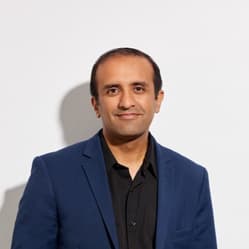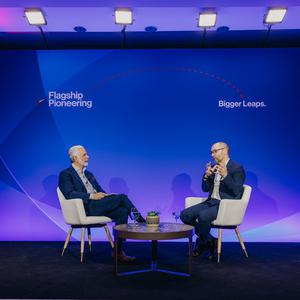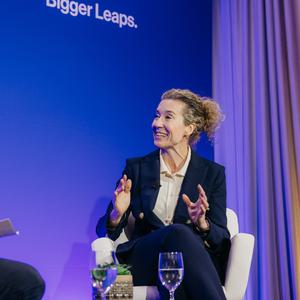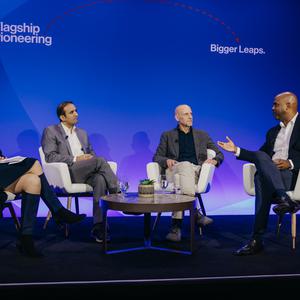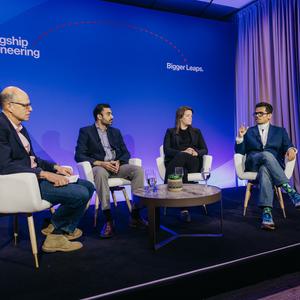Imagine a bridge with small cracks forming in the foundation. To the casual observer, the bridge looks fine, but over time, those cracks deepen, weakening the structure. We've learned to spot these early signs of wear and reinforce bridges long before disaster strikes. This ability to detect small but critical weaknesses and act early has transformed how we maintain infrastructure.
But in healthcare, we are still waiting for collapse. We treat disease as if it begins the moment symptoms appear, when in reality, disease begins silently, often years earlier. Alzheimer's disease begins decades before memory fades, cancer quietly takes root long before a tumor is visible, and cardiovascular disease builds silently until a heart attack strikes. These conditions all follow a similar path — progressing along a continuum from subtle, early changes to advanced, symptomatic stages. And by the time symptoms surface, the damage is often already irreversible.
Today, the greatest health challenges — chronic diseases like cancer, heart disease, and neurodegenerative conditions — are met by a healthcare system built for crisis, not early intervention. This “sickcare” model excels in treating symptoms once disease is advanced, but it lacks the tools to detect early signals or the interventions to stop or reverse progression.
As a result, patients don’t receive clinical care until illness becomes visible. By that point, treatment is not only more difficult and less effective — it is exponentially more expensive. Chronic diseases now affect half of all Americans and account for 86% of U.S. healthcare spending, yet despite this investment, the U.S. still experiences some of the worst health outcomes among high-income nations, including the lowest life expectancy and highest rates of avoidable deaths. It is far more cost-effective to repair small cracks than to rebuild the bridge — just as it is far less costly to detect and prevent disease early than to treat it in its advanced stages.
At Flagship, we strongly believe that the greatest breakthroughs in health will come not just from treating disease, but from preventing it from ever taking hold. That’s why we launched our Preemptive Health and Medicines (PHM) Initiative — to help shift our healthcare system toward a proactive model that predicts, detects, and intervenes earlier. Pioneering this work is Etiome, a company we founded to redefine how we understand and intervene across disease progression. Etiome is building tools to enable a new standard of care — one that anticipates and preempts disease. The goal is to not only extend life, but to expand health — adding more healthy years to every life.
Mapping the continuum of disease
While selective screening methods — such as cholesterol tests, blood pressure monitoring, and cancer screenings — have advanced clinical care by enabling earlier intervention, they remain limited in scope and insufficient. We need a broader, more comprehensive precision medical forecasting toolkit capable of detecting more diseases at their earliest stages. Just as importantly, we need interventions tailored to each stage of disease — targeting the underlying biological mechanisms that drive progression.
With advances in high-resolution biological technologies, we now have the tools to transform what’s possible in human health: to make disease progression visible, actionable, and ultimately, preventable. But to truly enable preemptive care, Etiome had to solve one of medicine’s hardest problems: detecting disease transitions before symptoms appear. The company redefined disease as a continuum of biological change rather than a binary state, enabling AI models to track subtle shifts in the body over time. Just as engineers detect microfractures and then reinforce a bridge before it fails, Etiome’s models — trained on large-scale clinical and molecular data — can identify when someone is silently progressing toward disease or advanced progression, often long before a physician would know to act.
But just as not every crack in a bridge signals catastrophe, not every biological signal is meaningful. Etiome has developed tools to distinguish early signs of disease called "biodynamic shifts" — subtle, stage-specific biological changes triggered by genetic, environmental, and temporal factors — from normal biological variation, separating early signs of catastrophe from typical wear and tear.
However, prediction alone isn’t enough. By measuring these shifts through novel biomarkers, we can pinpoint each person’s unique disease “biostage,” and then match them to targeted interventions that slow, halt, or even prevent progression. Already, Etiome has discovered drug targets with activity at specific stages, biomarkers detectable in routine blood samples, and new ways to evaluate early interventions using both molecular and clinical signals. Because most existing medicines aren’t designed — or tested — for these early stages, Etiome is also building new discovery and evaluation frameworks tailored to each stage of disease. The goal isn’t just to react to illness, but to preserve health — delivering the right treatment at the right time, before symptoms ever appear.
Less disease and less suffering
Whether in infrastructure monitoring, weather forecasting, or financial systems, we have learned to prevent disasters by detecting early warning signs and swiftly taking targeted action. Now, healthcare must do the same.
What if, instead of diagnosing Alzheimer’s only after cognitive decline, we could detect the earliest biological signs and intervene, preserving the qualities that shape who we are? What if, rather than recognizing macular degeneration once vision fades, we could prevent retinal damage and safeguard sight? And what if, instead of discovering pancreatic cancer after it has silently advanced, we could intercept it at a stage where treatment vastly improves survival? By acting on diseases at their earliest inflection points, we can add more years to life while preserving the quality that makes life worth living.
Thanks to advances in computational and biological science, this vision is becoming a reality. Etiome is helping usher in an era of truly preemptive healthcare — one that acts early, not reactively. We are pioneering a future where more of us stay healthy, longer. Because the true power of medicine isn’t just in treating disease, it is in acting early enough to change the outcome for patients and families.


